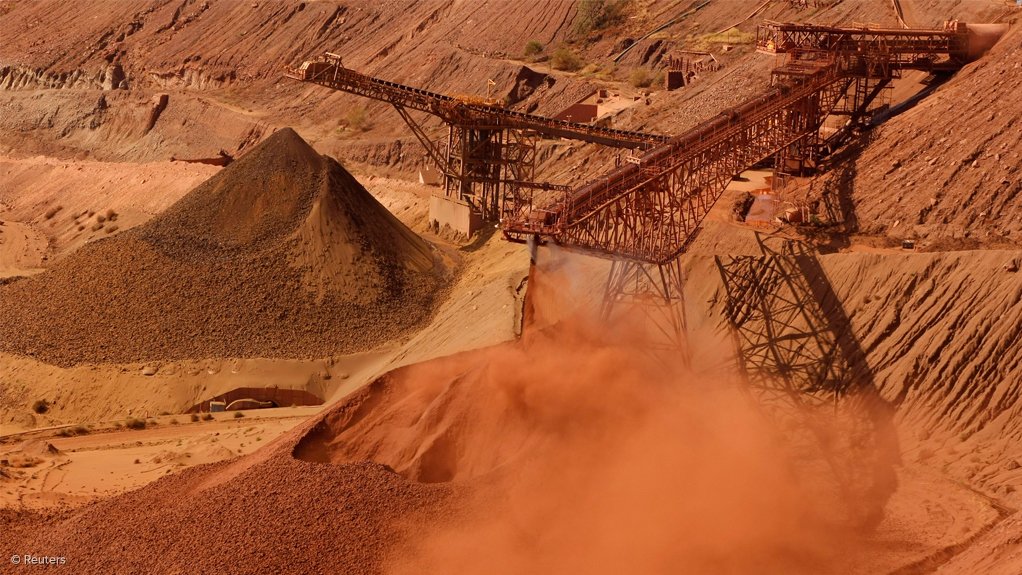LONDON – The world’s two largest mining companies rejected a proposed A$7.2-billion ($5.5-billion) tax increase on their Western Australian iron-ore operations, saying it’s likely to put jobs and competitiveness at risk.
Brendon Grylls announced the tax proposal after being appointed the new leader of the state’s Nationals party on Tuesday. The plan to raise the production rental cost on Rio Tinto and rival BHP Billiton to A$5 a metric ton from A$0.25 would be a pillar of the Nationals campaign for the 2017 state election, according to a statement.
“The Nationals WA believe that the state and taxpayers have facilitated a huge expansion of the iron-ore industry at great cost to our state budget and the big miners are not paying their fair share,” Grylls said in the statement. “These two miners have made almost $140-billion since 2010, and Western Australia has facilitated that.”
The Nationals are the smaller party in the ruling coalition in the state, under Premier Colin Barnett of the larger Liberal party. Grylls has met with Barnett to discuss the policy, according to the statement. The hike would add A$7.2-billion to the state’s budget across its forward estimates and bring it back into surplus, the party said.
The proposal isn’t “supported by business and was unlikely to proceed given it would need the support of the Nationals’ alliance partners,” said Chamber of Commerce and Industry of Western Australia’s CEO Deidre Willmott on Tuesday in a statement.
Royalty income, Western Australia’s third-largest source of revenue after taxes and federal government grants, is forecast to decline 8% to about A$3.8-billion this fiscal year, mainly as a result of lower iron-ore prices, the state government said in May.
“There are no grounds for a new mining tax in Western Australia and it should not be adopted as Nationals policy,” London-based Rio said in an e-mailed statement. “An ill-conceived tax grab will place these local jobs and the growth of Rio Tinto’s iron-ore business at risk.”
Rio and BHP, together the second- and third-largest iron-ore exporters in the world, have expanded aggressively in Western Australia, spending billions on new mines, ports and rail operations to tap surging demand from China. After climbing to a record of almost $200/t in 2011, the price of the steelmaking raw material plunged to near $60/t thanks to a deepening glut as producers expanded.
INTERNATIONAL MARKET
“We do not understand why a proposal that is so discriminatory and uneconomic would be targeted at two companies,” BHP said in an e-mailed statement. Producers are operating in “an international market and we have to be able to compete or will lose market share,” the Melbourne-based producer said. Australia is the top iron-ore exporter, ahead of Brazil.
Rio produced a total of 310-million tons of iron-ore in the state last year and paid about $3.3-billion in taxes and royalties in Australia, including $1.2-billion to Western Australia’s state government, according to filings. The exporter employs about 12 000 people in the state, with the majority at its giant mining complex in the northwestern Pilbara region. The jobs rely on a “stable and competitive taxation environment,” said Rio.
BHP, with mining operations, two port facilities and about 1 000 km of railroad in the Pilbara, had output of 257-million tons, including products for joint-venture partners, from the state in the 12 months to June 30. The producer has paid about A$65-billion in taxes and royalties in Australia over the past 10 years, including A$10.6-billion in royalties to the Western Australian government, BHP said in the statement.
Edited by: Bloomberg
EMAIL THIS ARTICLE SAVE THIS ARTICLE
To subscribe email subscriptions@creamermedia.co.za or click here
To advertise email advertising@creamermedia.co.za or click here













